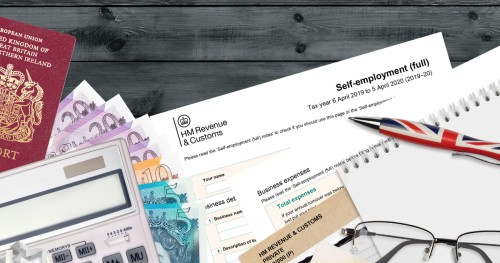Am I a disguised employee if over 25% of my earnings are from one client?

Freelancer’s Question: I am HMRC-registered as a sole trader and have been working on behalf of a single company for over two years. I work part-time for them, working the same days and hours each week.
Someone told me that if more than 25% of your earnings come from one company (100% of my earnings come from this company), then you are considered a temporary employee; is that correct? Can you shed some light on this rule? And also, should I be receiving any benefits - currently I receive none.
Expert’s Answer: Working for more than one client can indicate that you are likely to be self-employed, but you can also be genuinely self-employed and only have one client.
The key to whether you are a temporary worker/employee or self-employed is based around several factors which build a picture of how you work.
The 'SDC' test
One test often referred to is ‘SDC,’ or Supervision, Direction or Control. In essence, that means is if you are not closely supervised, directed or controlled by your client, then you are likely to be self-employed.
An easy illustration of this is choosing a builder to build an extension on your home. Generally, the homeowner will agree the project scope with the builder, but won’t tell the builder exactly how to do the work, nor will they closely supervise the work once underway because they are paying for the builder’s expertise in doing the work.
Also, if the builder makes a mistake it is generally expected that he or she will rectify the mistake at their own cost, i.e. the homeowner won’t expect to pay extra if the wall is built in the wrong place! All of these factors suggest a degree of independence, or self-employment, with the builder being able to do the work however they deem best, according to their expertise.
When in doubt, check your in-business credentials
It becomes less clear in your case of working for just one company for over two years, and it is possible that the way in which you work might actually be more akin to employment than self-employment.
You need to consider if you are genuinely ‘in business on your own account.’
For example do you provide your own materials, your own business insurance, and are you responsible for rectifying any mistakes? Are you free to choose when you work, e.g. what would happened if you decided not to turn up for your regular days/hours?
The status areas which a court (and HMRC) would scrutinise
If you are genuinely self-employed then you have the freedom to decline work, and the company that you work for has the freedom to stop providing you with work. If however there is an expectation that the work will be provided with no end-point, and that you are expected to accept future work, then this starts to look like there is a ‘mutuality of obligation’ on both parties.
This is often an indicator of an employment relationship rather than genuine self-employment. And this Mutuality, alongside the previously mentioned aspects of Control, Financial Risk and Being In Business Of Your Own Account are all key factors of the IR35 rules – which regulate the status of workers like you, but who operate through their own limited company.
Not self-employed? You might be a 'worker'
If you believe that you are not genuinely self-employed, then your status might be that of ‘worker’ rather than employee. There have been several court cases of late concerning this issue which I’d recommend you read up on.
But in short, ‘worker’ status confers some statutory rights, although not as many as being employed. However, if you are a worker then you are entitled to receive the National Minimum Wage, paid holiday, rest breaks, protection for whistleblowing and the right not to be treated less favourably if you work part-time. These are the sorts of ‘benefits’ I imagine are on your mind in your question.
Talk to your client, Citizens Advice or a status specialist
Finally, if you think that your employment status is incorrect and that you are not genuinely self-employed, then you should discuss this with your client in the first instance.
If you can’t reach an agreement with the client, then you could take them to an employment tribunal if you believe you are in fact a worker or employee rather than genuinely self-employed. If that happens, you may wish to talk to an adviser at Citizens Advice (www.citizensadvice.org.uk) about how to proceed.
But hopefully it won’t have to come to that and your arrangement and working practices can be sorted between yourself, your client and if need be, a status adviser. Good luck!
The expert was Julia Kermode, founder of independent work champion iWork.



Comment
Log in or create your account to react to the article.